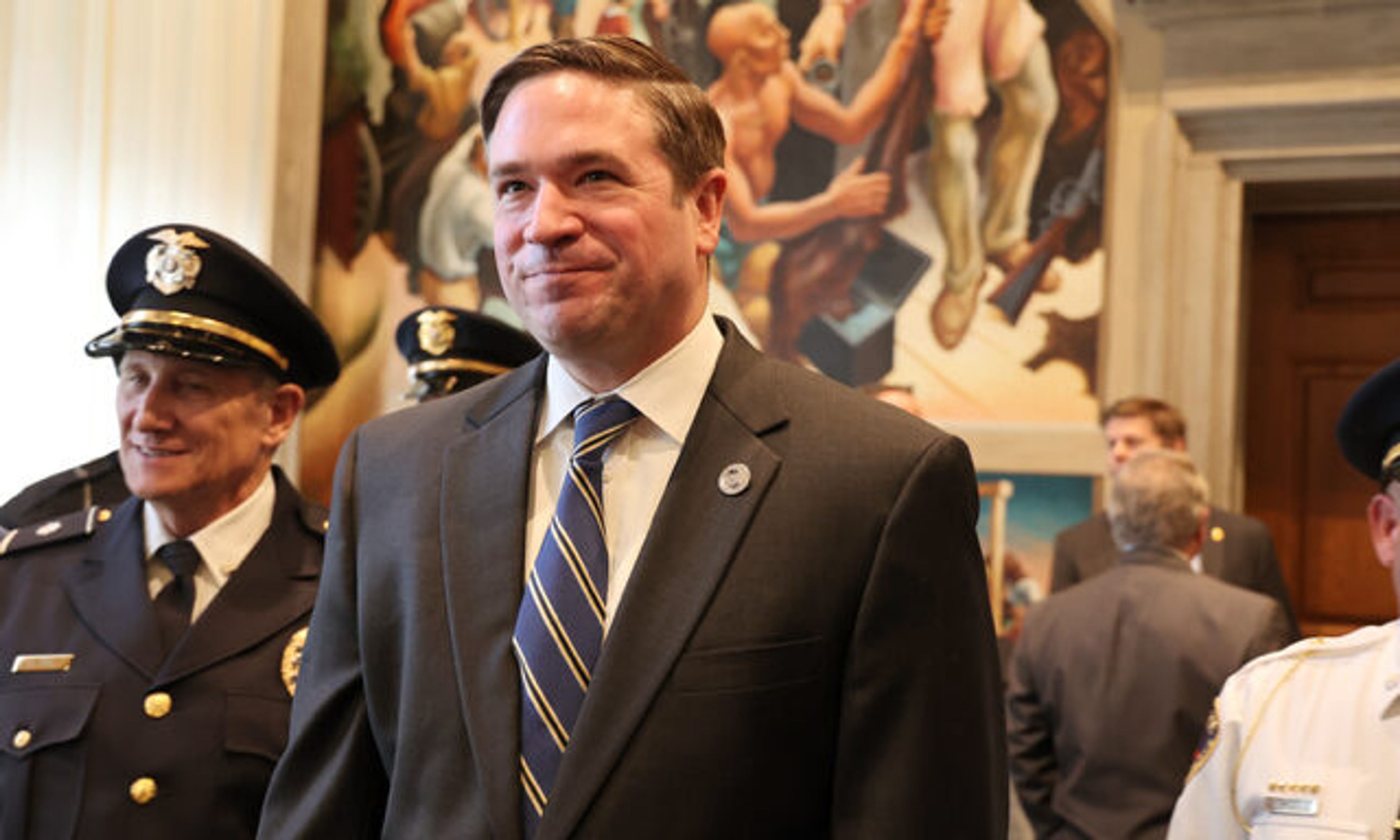State highway chiefs want $600 billion for roadwork
LITTLE ROCK, Ark. -- The U.S. must expand and improve rural highways because its inadequate system can't support the trade and tourism that helps drive the nation's economy, a group of state highway department directors said Monday. The American Association of State Highway and Transportation Officials released a report in Little Rock and in Wichita, Kan., saying freight shipped by tractor-trailers is projected to grow rapidly in the coming couple of decades and much of that travel will be on rural roads.. ...
LITTLE ROCK, Ark. -- The U.S. must expand and improve rural highways because its inadequate system can't support the trade and tourism that helps drive the nation's economy, a group of state highway department directors said Monday.
The American Association of State Highway and Transportation Officials released a report in Little Rock and in Wichita, Kan., saying freight shipped by tractor-trailers is projected to grow rapidly in the coming couple of decades and much of that travel will be on rural roads.
Marvin Childers, director of The Poultry Federation, noted that Arkansas is the No. 2 chicken producer, churning out 30 million broilers per week. The birds are shipped by truck, as is their feed, often over two-lane roads.
Legislation that has given states federal money for highway work is to expire Dec. 31. Association director John Horsley said that, in the short term, Congress needs to extend the funding at present levels until a new bill can be crafted. Horsley and other speakers said $600 billion would be enough to expand roads' capacity and make them safer.
When most people think about highway work, they think of urban congestion and orange barrels on the road, speakers at an association news conference said. But the 60 million people who live in rural America equal the population of the nation's largest 100 cities.
"Too often what we found, the needs of rural America ... are not understood," Horsley said.
Good roads serve industry and create jobs, just as good schools enhance a community's vitality, Mississippi highways chief Larry "Butch" Brown said.
"It's time to provide [rural motorists] with a better system," Brown said.
The South and West are expected to undergo the greatest population growth in the years ahead, and roads and transit systems need to be able to keep up. Brown noted that in Idaho, for instance, major highways are far apart.
"To give you some idea of the scale of these distances, for a farmer to move his grain harvest in Idaho, he would have to cross the width of the entire state of Massachusetts to get from one major highway to the other," Brown said.
In Mississippi, 42,000 farms rely on the state highway network, but at various times during the year, residents must share their roads with hurricane evacuees from Alabama and Florida.
"Most of these evacuees are moving to inland counties, creating traffic backups and long travel times," Brown said. "Narrow two-lane rural roads cannot support the demand of travel if not improved to meet the demand. This is a health and safety issue and must be addressed."
The report notes that 66 U.S. cities with a population of 50,000 or more do not have direct access to interstate highways. The list includes Jefferson City, Mo., which is a state capitol. In Arkansas, Hot Springs and Jonesboro are on the list, although the state has the 12th largest highway system in the U.S., Arkansas highways director Dan Flowers said.
California has 19 cities on the list, Texas has seven and Georgia and Wisconsin have three each. No other state has more than two.
Many two-lane rural roads were constructed decades ago and don't have shoulders or emergency lanes. Three times as many fatal crashes occur in rural areas as in cities, so upgrades can be justified on the basis of safety alone, the association said.
Flowers acknowledged it's a bad time to seek a massive commitment from Congress for highway improvement. States have undergone budget cuts and there is slim support for an increase in the federal gasoline tax to provide more highway funding.
"It's not going to be easy," he said, but states need a predictable source and amount of funding to carry out improvements.
Connect with the Southeast Missourian Newsroom:
For corrections to this story or other insights for the editor, click here. To submit a letter to the editor, click here. To learn about the Southeast Missourian’s AI Policy, click here.








